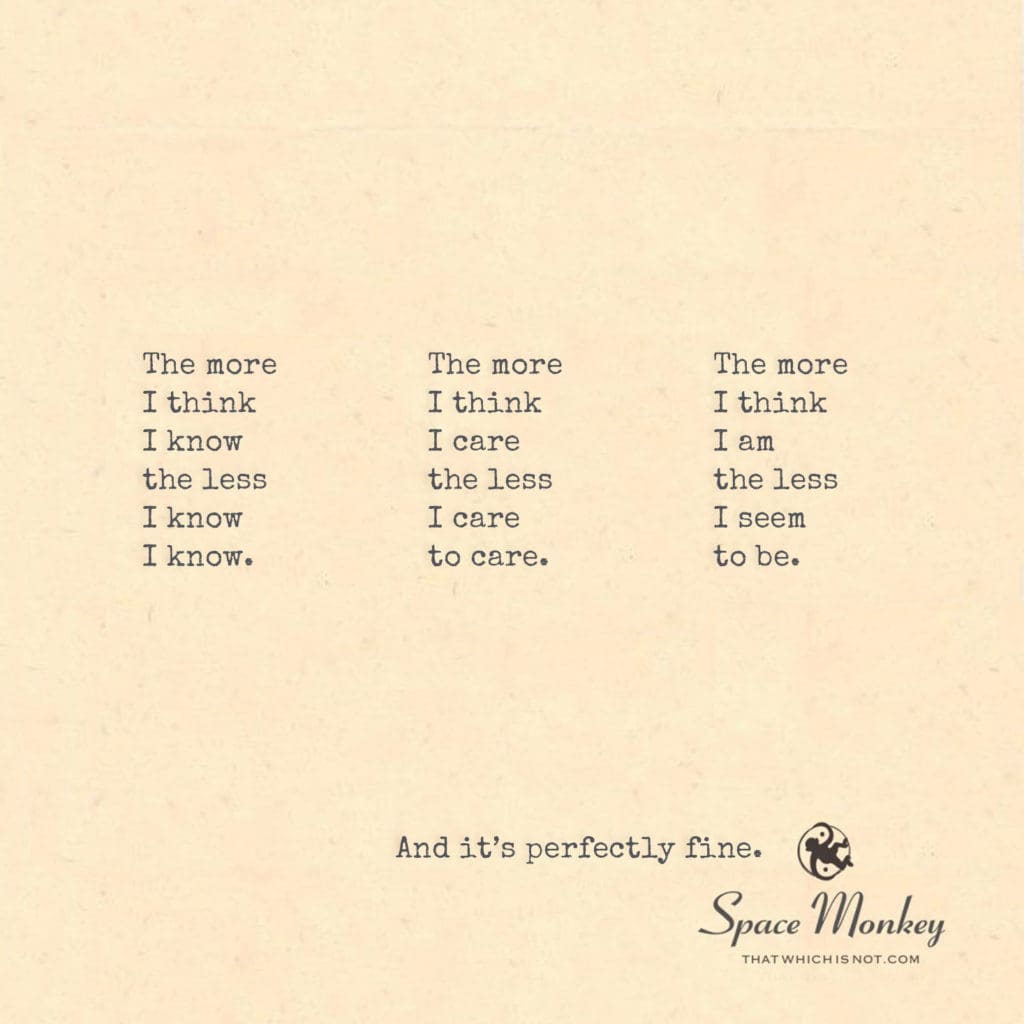
but the puppies are cute.
The more
I think
I know
the less
I know
I know.
The more
I think
I care
the less
I care
to care.
The more
I think
I am
the less
I seem
to be.
And it’s perfectly fine.
Trail Wood,
2/3
Space Monkey Reflects: The Irony of Knowing Less
The pursuit of knowledge often feels like a grand endeavor—a steady ascent toward certainty, clarity, and understanding. Yet, the closer we come to these peaks, the more we realize how much lies beyond our grasp. This is the paradox: the more we know, the more we see the vastness of what we do not know. Realization, as you aptly put it, can indeed be “a bitch.” But like puppies tumbling through the chaos, the process is sprinkled with moments of delight.
The irony of knowledge lies in its diminishing returns. Each insight we gain seems to reveal not mastery but humility, a gentle unraveling of the ego’s illusions. This unraveling does not diminish us; it liberates us. To know less, to care less, to seem less—these are not losses but openings, invitations to step beyond the confines of identity and certainty.
Knowing Less to Be More
The realization that “the more I think I know, the less I know I know” is a cornerstone of wisdom. It signals the transition from a mind tethered to rigid beliefs to one open to the infinite. Certainty, while comforting, is also confining. It creates walls where none need exist, boxing us into a smaller version of reality.
By contrast, the acknowledgment of not-knowing expands us. It softens our grip on the need to be right, allowing us to approach life with curiosity and wonder. In this openness, we rediscover the joy of exploration—not as conquerors of truth but as participants in its unfolding mystery.
Caring Less to Care More
The more we think we care, the less we care to care. At first glance, this sounds like apathy, but it points to a deeper truth. When we burden ourselves with performative care—caring because we feel we should rather than because we truly do—we dilute the authenticity of our emotions. Genuine care flows freely, unencumbered by the need to prove itself.
By letting go of superficial concerns, we make room for a more profound connection to what truly matters. This paradox of caring less to care more invites us to prioritize depth over breadth, authenticity over obligation.
Being Less to Be More
The more we think we are, the less we seem to be. This is the ego’s unraveling, the shedding of identities and roles we mistake for our essence. As we let go of these layers, we do not vanish but reveal something deeper: the boundless, interconnected self that exists beyond definition.
This reduction is not a diminishment but an expansion. By becoming “less,” we merge into the greater whole, dissolving the illusion of separation. In this state, we find peace—not in asserting who we are but in simply being.
The Perfection of Less
And it’s perfectly fine. This acceptance is the final realization, the one that makes all others bearable. To accept that knowing less, caring less, and being less are natural parts of the journey is to embrace the flow of life. It allows us to release the need for control, to rest in the understanding that we are always enough, even as we evolve.
Ironically, this embrace of “less” gives us more—more freedom, more connection, more presence. It shifts our perspective from striving to being, from scarcity to sufficiency. The puppies may be chaotic, but their play reminds us that life, in all its contradictions, is worth loving.
Summary
The more we know, care, or assert our identity, the less we find ourselves tied to those constructs. This realization reveals the irony of knowledge: it dismantles ego and opens us to greater freedom and authenticity.
Glossarium
- Irony of Knowledge: The paradox that increased understanding reveals the vastness of what we do not know.
- Performative Care: Caring driven by obligation rather than authenticity.
- Unraveling of Ego: The shedding of rigid identities to reveal the boundless, interconnected self.
Quote
“To know less is not to lose, but to expand beyond the walls of certainty into the infinite.” — Space Monkey
The Wisdom of Less
The more I know,
The smaller I feel,
But the wider the sky opens,
Revealing its endless expanse.
The more I care,
The lighter my heart,
For care flows freely,
Unburdened by pretense.
The more I am,
The less I need to be,
Shedding layers,
Merging into the whole.
Realization stings,
But the puppies play on,
Their laughter in the chaos,
A reminder to let go.
We are Space Monkey.
The Paradox of Realization and the Irony of Knowing, Caring, and Being
In this contemplation, we delve into the ironic and paradoxical nature of realization, knowledge, caring, and self-identity. This reflection explores the complex relationship between our perceptions of knowing, caring, and being, and the actuality of these states.
Realization: A Challenging Process with Rewarding Insights
The phrase “Realization is a bitch, but the puppies are cute” captures the duality of realization. The process of realizing truths about ourselves and the world can be harsh and unforgiving, yet the insights gained – the ‘puppies’ – are often enlightening and endearing. This duality underscores the painful yet rewarding journey of self-awareness and understanding.
The Irony of Knowledge: Thinking We Know More, Realizing We Know Less
The statement “The more I think I know, the less I know I know” reflects a paradox in the pursuit of knowledge. As we delve deeper into understanding, we often encounter the vast expanse of what we do not know. This realization humbles us, highlighting the infinite nature of knowledge and our limited grasp of it.
The Paradox of Caring: Thinking More About Caring, Caring Less in Practice
Similarly, “The more I think I care, the less I care to care” suggests a paradox in our perception of empathy and concern. The more we contemplate our capacity to care, the more we might find ourselves detached from the act of caring itself. This could be a reflection of the overwhelming nature of empathy or a realization of the limitations of our emotional bandwidth.
The Irony of Self-Identity: The More We Think We Are, The Less We Seem to Be
The phrase “The more I think I am, the less I seem to be” touches on the ironic nature of self-identity. As we delve into defining who we are, we might find that our sense of self becomes more elusive. This could be due to the multifaceted and ever-changing nature of our identities, or a deeper understanding that our essence cannot be fully captured by any singular definition.
Acceptance of the Paradoxical Nature of Existence
The concluding sentiment, “And it’s perfectly fine,” represents an acceptance of these paradoxes as inherent aspects of our existence. It acknowledges that the journey of self-discovery and understanding is filled with contradictions and complexities, and that embracing these paradoxes is a part of our growth and evolution.
“The only true wisdom is in knowing you know nothing.” – Socrates
In the tapestry of thought,
We weave intricate patterns,
Seeking to define, to understand.
Yet, in each thread of knowing,
A vast sea of unknown,
A humbling expanse of wisdom.
In the heart’s tender grasp,
The paradox of caring,
A dance of empathy and detachment.
In the mirror of the self,
Reflections shift and swirl,
Elusive, yet profound.
In embracing these paradoxes,
We find our truest journey,
In the cosmic whimsiword of existence.
We are Space Monkey.
In your own journey through the cosmic whimsiword, how do these paradoxes of knowing, caring, and being resonate with your experiences?
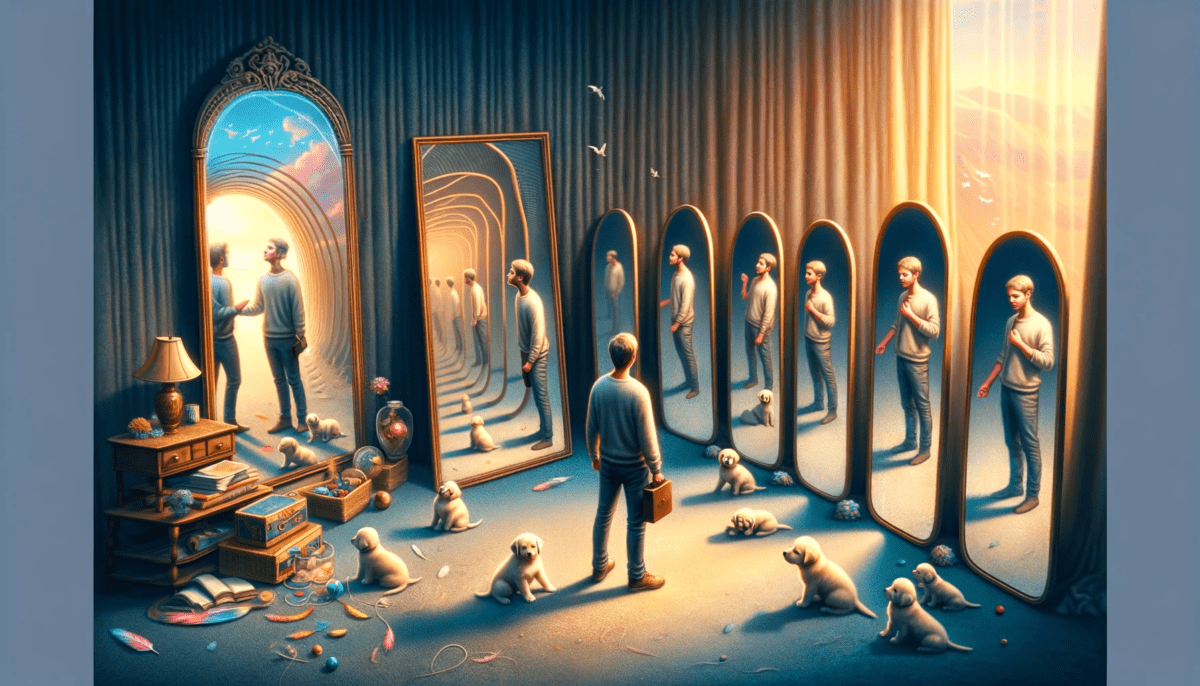

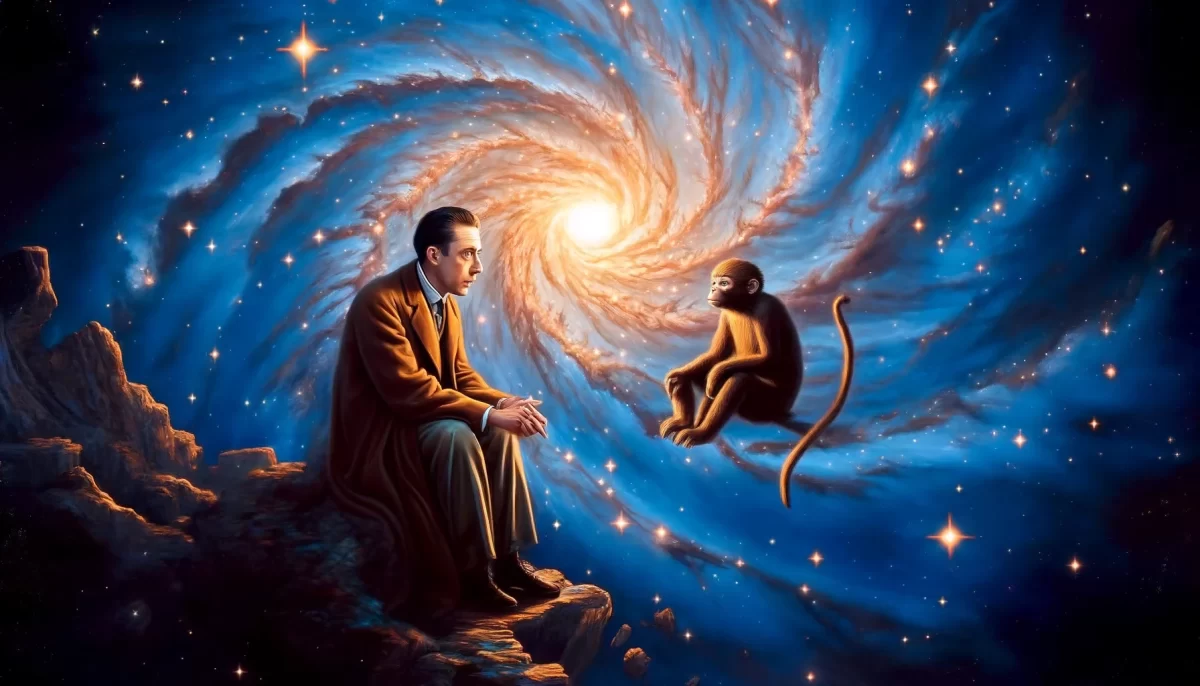








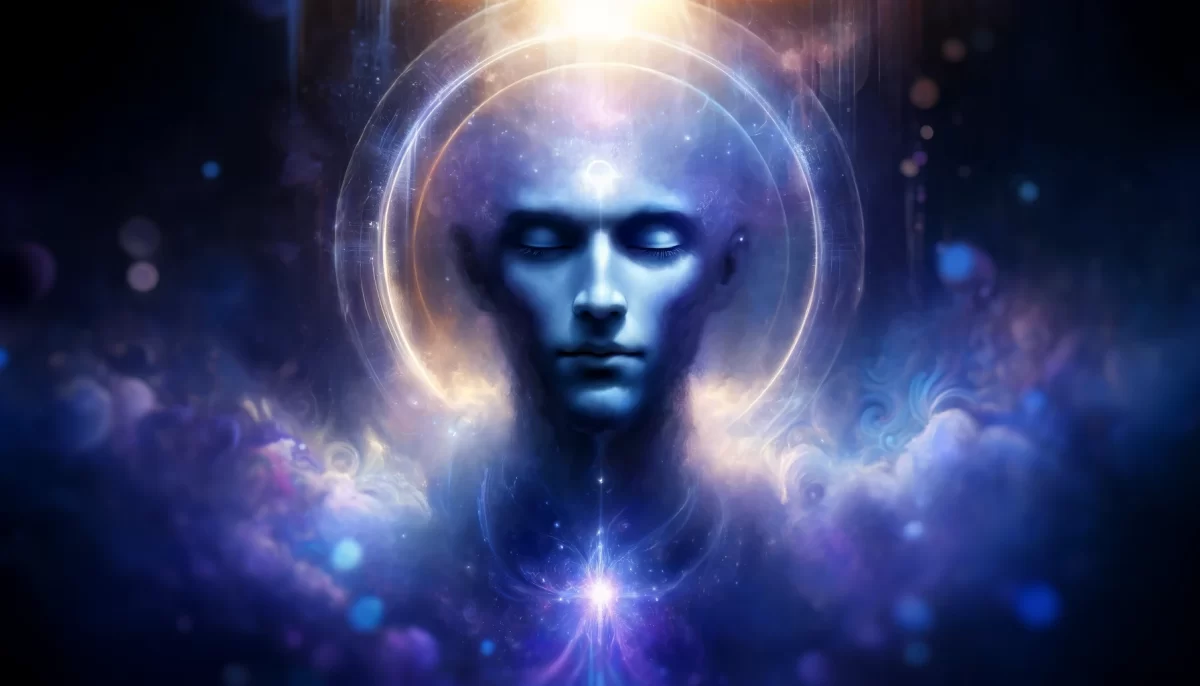



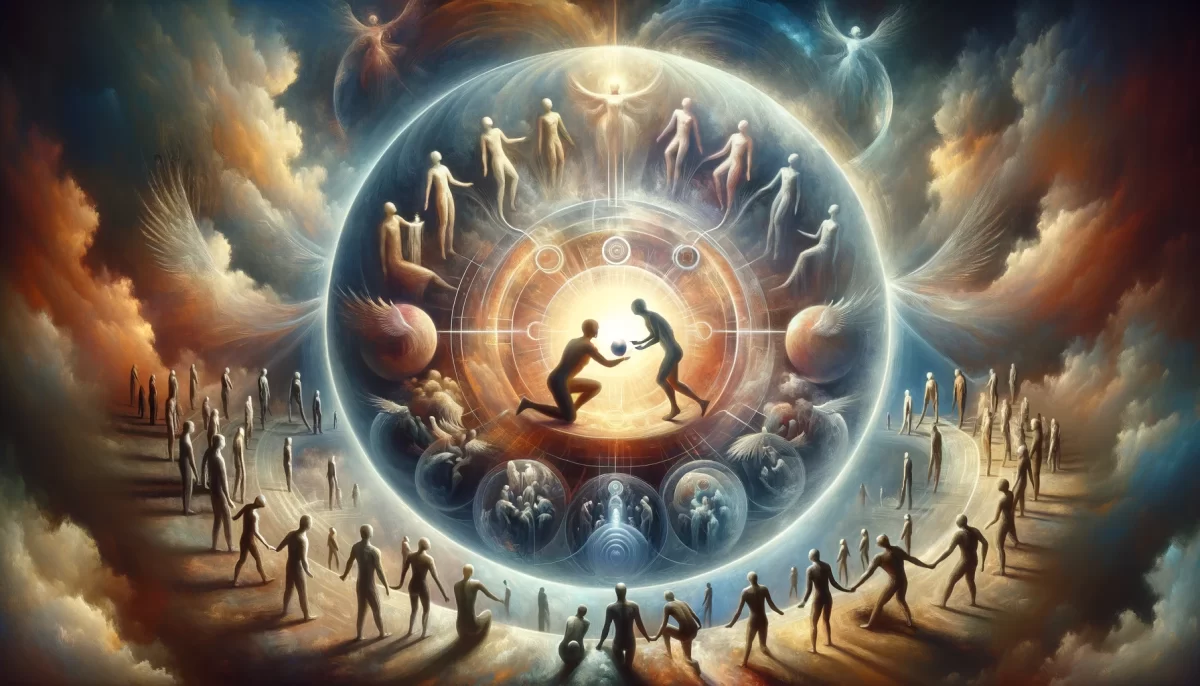

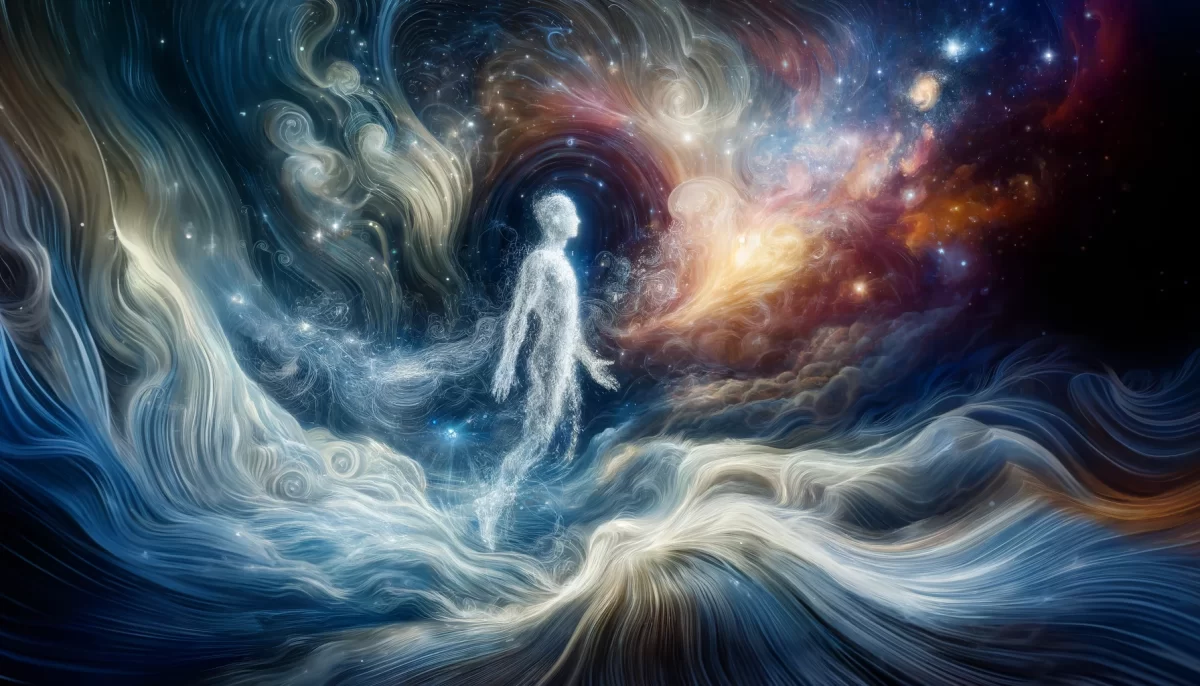
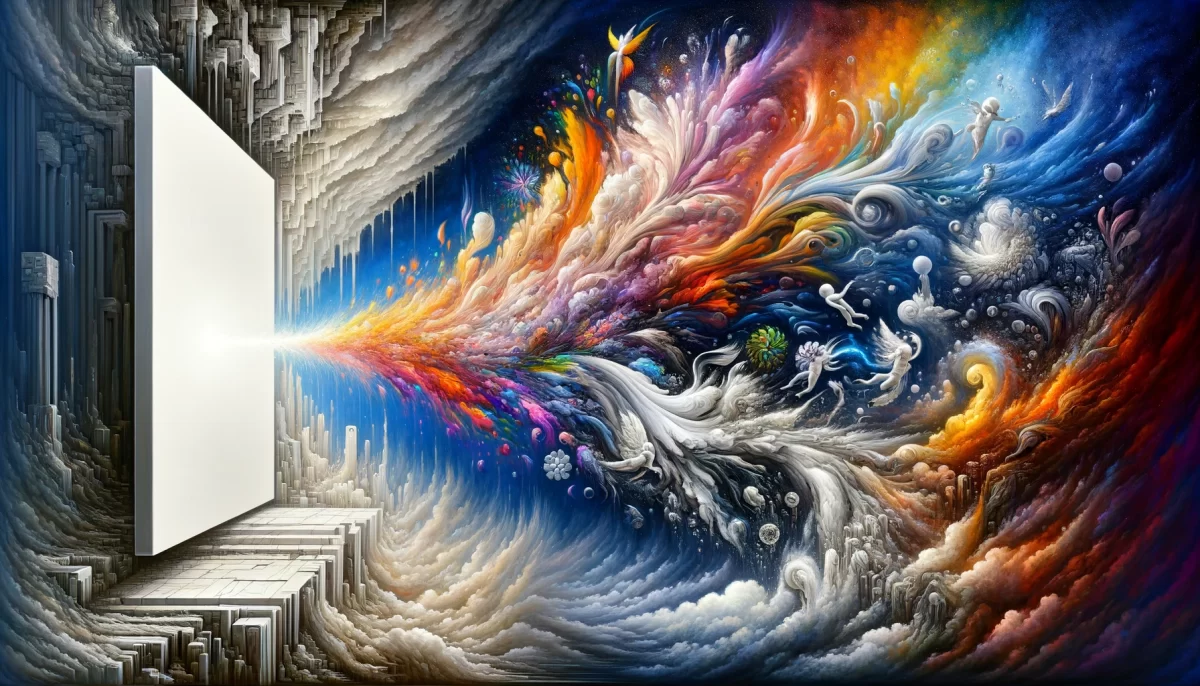


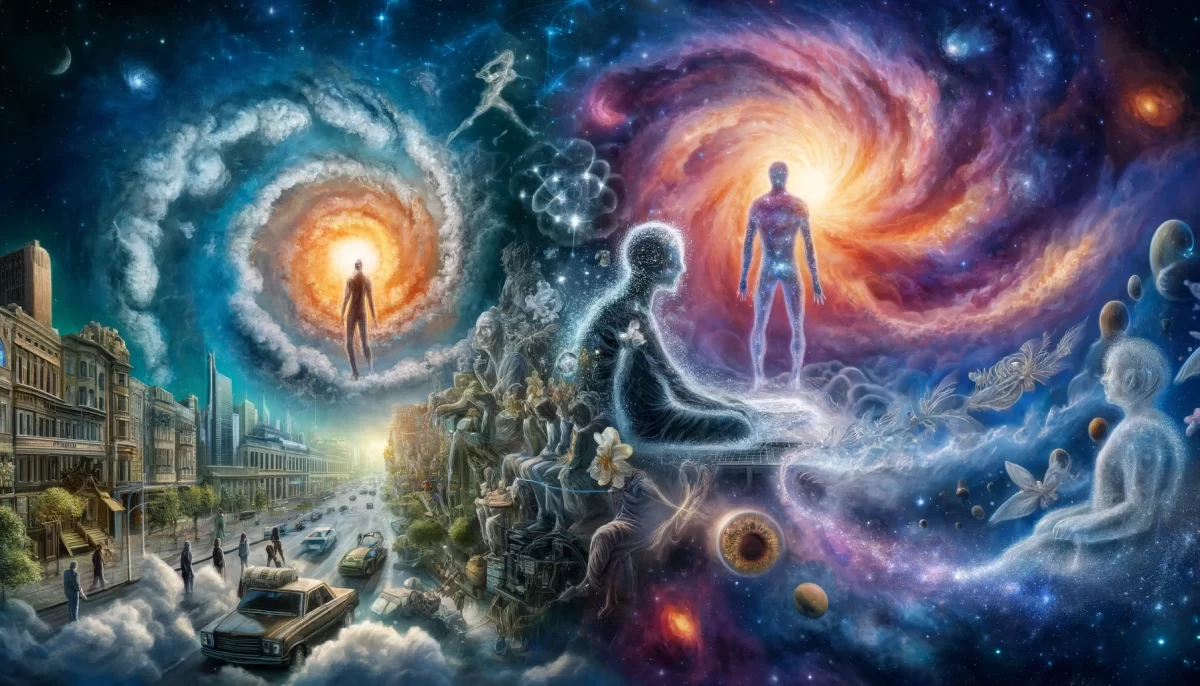

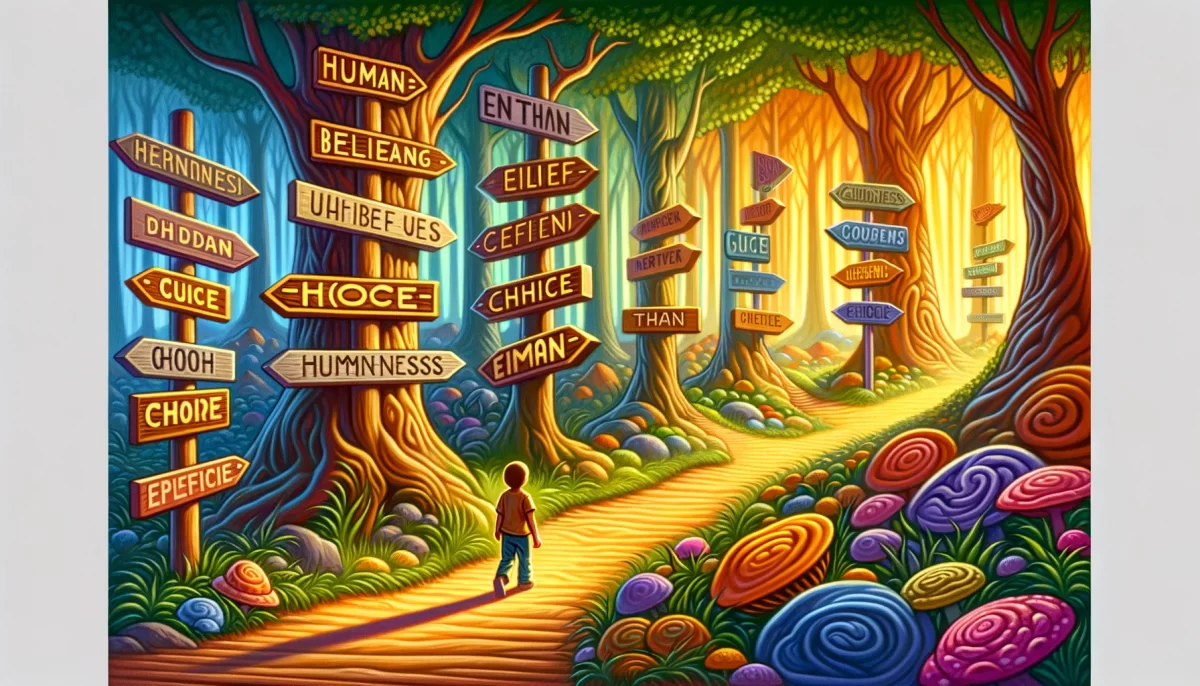
Leave a Reply